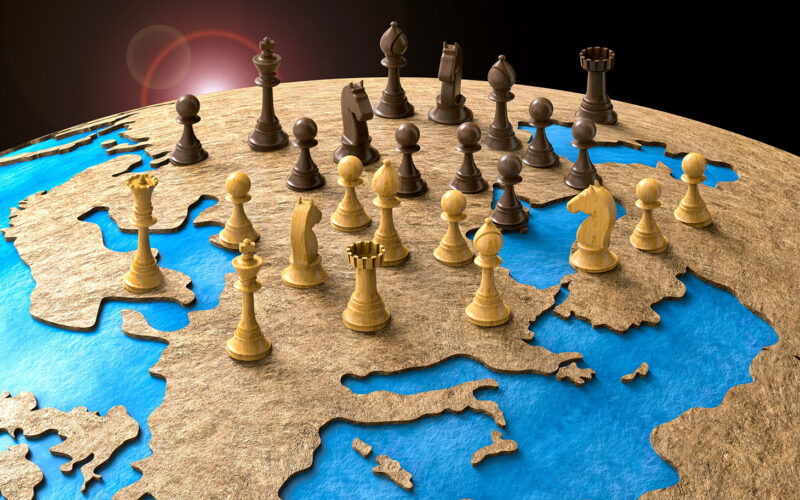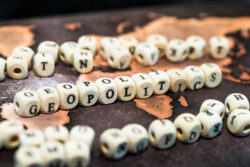In today’s issue:
- How do you explain this?
- Even the Russians couldn’t have mismanaged us this badly
- My theory of government
It’s been a rough start for the new Labour government. You could almost feel sorry for them.
But is it really that hard to be a politician?
Some people argue our leaders should just give voters what they want. That’s the whole point of democracy.
As H. L. Mencken put it, “Democracy is the theory that the common people know what they want, and deserve to get it good and hard.”
Having copped the consequences of our demands, we then all complain about the dearth of true leaders at the top. Politicians should tell people the awkward truths and impose the tough policies we really need, not just follow the crowd…
We demand voters ask, “not what your government can do for you, but what you can do for your local diversity and inclusion civil servant on £77,000!”
The trouble is, it never seems to be enough. Government spending and taxation as a share of the economy is so high that the parasite risks killing the host.
Indeed, in our economic statistics it is no longer clear who is supporting whom – it’s all just counted as GDP. How can that be true when one side of the equation has to pay taxes to finance the other?
Lately, there has been a new shift. An entirely new theory of government. It’s now fashionable to claim civil servants are our true unelected leaders. They just ignore and undermine the elected ones to get their preferred policies across the line regardless.
It’s the best excuse the Tories could come up with for their time in power – they weren’t. But that doesn’t mean they’re wrong.
The battles inside the Conservative Party may have been masking a much bigger conflict between politicians and public servants all along. The idea of a silent coup would certainly explain a lot of policy failures.
Imagine working your way to the top of the civil service in the hope of changing the world, and then your minister tells you to change it for the worse. What do you think such people would do? They already believe they know better – that’s why they joined the civil service.
But the policies flowing out of Whitehall and Westminster don’t correspond very well to any of these theories of government.
Nobody wants them. They’re hardly tough choices. They definitely aren’t what the country needs. And no civil servant could devise such a mess.
Even the Russians couldn’t have come up with such a bizarre policy mix to try and sabotage our nation.
Just take a look at what is going on…
Our government is happy to import and consume vast amounts of oil… but not produce it.
What kind of idiocy is that?
Wildest of all, it claims this policy adds to our energy independence and security.
We can’t mine and burn the UK’s coal. But we can burn North American wood pellets and emit vast amounts of carbon in the process. That’s because some emissions count, while others do not.
Even the Guardian is asking questions:
Biomass power station produced four times emissions of UK coal plant, says report
Drax received £22bn in subsidies despite being UK’s largest emitter in 2023
Labour criticised the Conservatives for considering potential heating allowance cuts. And then means testing the payment themselves.
The one thing all politicians can agree on is that violent protest is never acceptable… depending on why you’re doing it and who you are.
It’s no wonder that our investment director John Butler is recommending UK investors go on the defensive. Here’s how. Of course, it’s not just us in the UK. Policies around the world are growing increasingly bizarre.
The German energy transition has resulted in some truly bizarre ones. Instead of shutting down coal and producing more carbon-free nuclear power, they’re doing the opposite.
They’ve even managed to make their attempts to mine enough new coal hypocritical by felling wind farms to get at it.
In the US, the Inflation Reduction Act’s projects are finally breaking ground… after inflation fell. Only about 2.6% of the subsidised projects are actually operating. But the president claims the credit for bringing inflation back down…
These people believe passing a law makes it so. And they think you believe them.
Over at the central bank, it’s the same nonsense. Central bankers claim loose monetary policy didn’t cause inflation in 2021 and 2022. But tight monetary policy did bring inflation back down in 2023 and 2024…
Federal Reserve chair Jerome Powell said for years that he wouldn’t cut rates until inflation was back to target. What did he just do? Cut rates before inflation hit the target…
Presidential hopeful Kamala Harris is out promoting the many policies she’d implement, if only she could get into a position of power…
Diversity, Equity and Inclusion hires are celebrated whenever they reach the top job. But when they muck up, you are not permitted to celebrate they were hired for their Diversity, Equity and Inclusion.
What’s going on here?
What theory of government explains the truly bizarre and erratic nature of our politics and policies today?
I suspect it’s about the size of government.
Expecting something so big to have a coherent policy on anything is the mistake we’re making. Government is so involved in every part of our lives that it can’t help but create contradictions.
As the Conservatives are increasingly admitting in their interviews, members of the cabinet completely disagreed about everything.
And isn’t that the real point? If no two people can agree, why do we give some of them the power to implement their policies? Why not let people choose for themselves whether they want heat pumps, vaccines, solar panels and the rather long list of other government interventions?
Surely, if politicians from the same party don’t know what’s best for you, nobody knows better than you?
But that is not the world we live in. The government is now so big that it controls us in every aspect. And it must keep busy to justify this state of affairs. What the policy is matters a lot less than making sure there is one.
Conveniently, the failure of each policy creates the need for several more. We must have an energy price cap to protect us from the failure of energy policies, for example.
And so we can expect the noose on our personal and economic lives to tighten ever more. Until something breaks.
Until next time,

Nick Hubble
Editor, Fortune & Freedom



